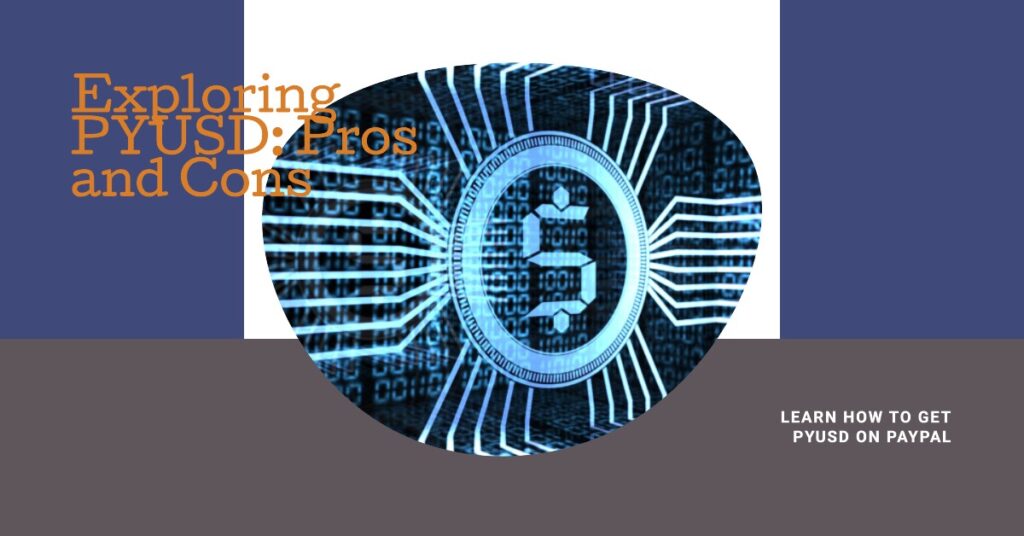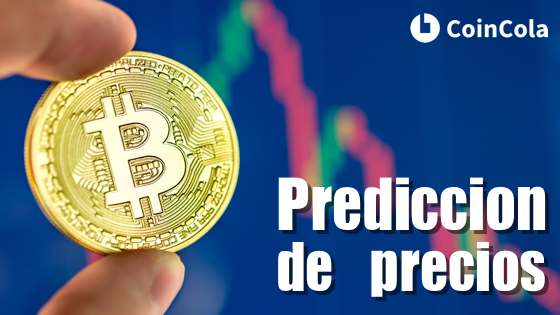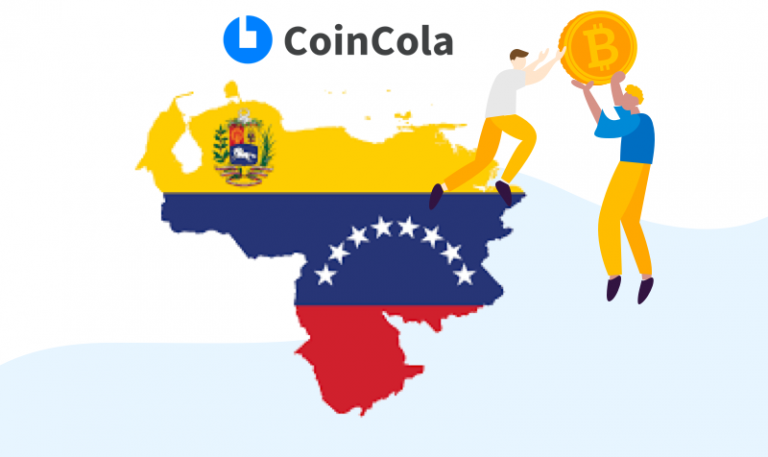How to Get PYUSD on PayPal? Exploring PYUSD: Pros and Cons

Cryptocurrency has become a force to be reckoned with in the world of finance. PayPal, a global leader in online payments, has not been left behind in this digital revolution. It has introduced its very own stablecoin, PYUSD, designed to facilitate payments in the Web3 era. In this article, we will delve into what PYUSD is, its significance, and how to get your hands on it through PayPal. Additionally, we’ll explore the pros and cons of PYUSD, giving you a comprehensive understanding of this new addition to the cryptocurrency world.
Understanding PYUSD
What is PYUSD?
PYUSD stands for PayPal USD, and it is a stablecoin that aims to maintain a stable value of $1 USD. Unlike traditional currencies, PYUSD is backed by secure and highly liquid assets, including dollar deposits, US treasuries, and cash equivalents. This ensures its stability and reliability in the world of cryptocurrencies.
PayPal’s Role
PayPal, one of the world’s leading online payment platforms, has introduced PYUSD as a means of facilitating seamless, secure, and instant digital transactions. This marks a significant step in the adoption of cryptocurrencies for everyday financial activities.
Technology and Infrastructure
PYUSD operates on the cutting-edge Web3 network, a revolutionary platform purpose-built for digital payments. This network facilitates seamless interactions with third-party exchanges, versatile wallets, decentralized applications (dApps), and thriving NFT marketplaces. The incorporation of PYUSD into the Web3 infrastructure ushers in a realm of unparalleled possibilities, reshaping the landscape of digital experiences.
Web3 represents the future of the internet, focusing on decentralized, user-centric, and secure digital interactions. This innovative framework empowers PYUSD to transcend the boundaries of traditional financial systems, paving the way for an array of exciting use cases.
Advantages of PYUSD
Delving into the advantages of PYUSD reveals a stablecoin that stands as a paragon of reliability and utility in the digital currency arena. Here’s a closer look at what makes PYUSD a compelling choice for individuals and businesses alike:
- Stability: PYUSD is meticulously designed to maintain a stable value of $1 USD, ensuring predictability and consistency in an otherwise volatile cryptocurrency landscape. This stability fosters trust and confidence among users.
- Security: Backed by a combination of dollar deposits, US treasuries, and cash equivalents, PYUSD offers a rock-solid foundation that assures security and mitigates risks. Users can transact with peace of mind, knowing their assets are safeguarded by a robust reserve.
- Efficiency: PYUSD streamlines digital transactions, allowing for swift and cost-effective money movement. Whether you’re making everyday purchases or conducting cross-border transfers, PYUSD’s efficiency shines through, reducing friction and enhancing financial agility.
- Web3 Compatibility: PYUSD’s integration with the Web3 network empowers users to harness its potential across a multitude of decentralized applications and platforms. This adaptability enhances the utility and reach of PYUSD, making it a versatile digital currency that aligns seamlessly with the evolving digital landscape.
In essence, PYUSD represents a significant leap forward in the realm of stablecoins, combining the reliability of traditional financial systems with the innovation and security of the Web3 network. Its stability, security, and efficiency set the stage for a new era of digital payments, making PYUSD a standout choice for those seeking a trustworthy and versatile digital currency.
You may like: How To Sell Amazon Gift Card for PayPal on CoinCola
PYUSD vs. Traditional Stablecoins
Comparative Analysis
In the ever-expanding realm of digital currencies, it’s essential to discern the distinguishing features that set PYUSD apart from its stablecoin counterparts like USDC and USDT. A comparative analysis reveals the unique characteristics that make PYUSD a standout choice:
- Stability and Security: PYUSD, like USDC and USDT, offers stability by pegging its value to the US dollar. However, it distinguishes itself by its robust security measures and backing by dollar deposits, US treasuries, and cash equivalents, ensuring an extra layer of trust and reliability.
- Web3 Integration: PYUSD’s integration with the Web3 network is a key differentiation. While traditional stablecoins may lack such adaptability, PYUSD thrives in the Web3 ecosystem, enabling a broader range of applications and interactions beyond conventional use.
- Transaction Speed: PYUSD stands out with its potential for faster transactions, aligning well with the instantaneous nature of digital payments. USDC and USDT may exhibit differences in transaction processing times, and this advantage can be critical in time-sensitive financial activities.
- Lower Fees: Another distinguishing factor is the potential for lower fees associated with PYUSD transactions. While USDC and USDT also offer competitive fees, PYUSD’s fee structure may appeal to users seeking cost-effective financial operations.
Potential Benefits
Exploring the potential advantages of adopting PYUSD over other stablecoins unveils a range of benefits that cater to the needs of users across the digital financial spectrum. Here are some key advantages:
- Broader Usability: PYUSD’s compatibility with Web3 and its presence in a variety of decentralized applications (dApps) and platforms means it can serve a more extensive range of purposes compared to traditional stablecoins. This flexibility expands its usability, from online purchases to DeFi interactions.
- Faster Transactions: PYUSD’s Web3 integration not only enhances its usability but also potentially accelerates transaction processing. Users can enjoy the swiftness of payments, making it an ideal choice for those who prioritize quick and efficient financial operations.
- Lower Fees: Cost considerations are paramount in the world of digital finance. PYUSD may offer a competitive edge with lower transaction fees, making it an attractive option for cost-conscious users looking to maximize their value.
Addressing Concerns
While PYUSD boasts numerous advantages, it’s essential to maintain a balanced perspective by addressing potential concerns or drawbacks. As with any financial instrument, PYUSD has its considerations:
- Market Volatility: While stablecoins are designed for stability, they are not entirely immune to market fluctuations. Users should be aware that external factors can influence the value of PYUSD, and its stability might not always be absolute.
- Regulatory Considerations: The regulatory landscape for stablecoins is evolving, and it’s essential to stay informed about potential regulatory changes or challenges that may affect the use and availability of PYUSD.
- Security Awareness: Although PYUSD is backed by secure assets, users should remain vigilant about their own security practices. Safeguarding private keys and adhering to best practices in cryptocurrency security is crucial to mitigate risks.
In this balanced assessment of PYUSD, we’ve uncovered its unique attributes, potential advantages, and considerations. Users can now make informed decisions about whether PYUSD aligns with their financial goals and priorities in the dynamic world of digital currencies.
You may like: How to Buy USDT with PayPal: A Full Guide
Obtaining PYUSD
How to Get PYUSD through PayPal
Navigating the world of cryptocurrencies and stablecoins may seem daunting, but acquiring PYUSD through PayPal is a straightforward process. In this section, we’ll provide you with a step-by-step guide on how to conveniently acquire, manage, and transact with PYUSD within the PayPal platform.
- PayPal Account Setup
To begin your PYUSD journey, you need a PayPal account. If you already have one, ensure it’s verified and up to date. If not, you can easily create one on the PayPal website or app.
- PYUSD Wallet Activation
Within your PayPal account, you’ll need to activate your PYUSD wallet. This wallet serves as your gateway to PYUSD transactions. It’s essential to set up two-factor authentication for added security.
- KYC Verification
To comply with regulatory requirements, PayPal may request Know Your Customer (KYC) verification. This involves providing identification documents to confirm your identity. Completing this step is crucial for full access to PYUSD features.
- Funding Your Account
You can fund your PayPal account through various methods, including bank transfers, debit or credit cards, or existing PayPal balances. Ensure you have the necessary funds to acquire PYUSD.
- PYUSD Purchase
Within your PayPal account, locate the PYUSD option. You can then specify the amount you wish to purchase. Confirm the transaction, and the equivalent value of PYUSD will be credited to your PYUSD wallet.
- Storage and Management
Your acquired PYUSD will be stored in your PayPal PYUSD wallet. It’s crucial to manage your wallet securely, utilizing strong passwords and enabling security features such as biometric authentication or PIN codes.
- Transactions
With your PYUSD in your wallet, you’re ready to conduct various transactions. You can send PYUSD to friends in the U.S. on PayPal without fees, or you can transfer it to Ethereum wallet addresses that accept PYUSD, opening up a broader range of possibilities.
Tips and Best Practices
Handling PYUSD within the PayPal platform requires some care and attention to ensure the safety of your digital assets. Here are some valuable tips and best practices:
- Secure Your PayPal Account: Strengthen the security of your PayPal account by regularly updating your password, enabling two-factor authentication, and monitoring your account activity for any unusual or unauthorized transactions.
- Private Key Security: If you plan to transfer PYUSD to external Ethereum wallets, safeguard your private keys. These keys are your access to your digital assets, so store them in a secure location offline, such as a hardware wallet.
- Regulatory Awareness: Stay informed about the regulatory landscape in your region regarding stablecoins and cryptocurrencies. Regulations may vary, and compliance is essential for a smooth experience.
- Regularly Update: Keep your PayPal and PYUSD wallet software up to date. Updates often include security enhancements and bug fixes, ensuring a secure and efficient experience.
- Educate Yourself: Continuously educate yourself about cryptocurrencies and the latest developments in the PYUSD ecosystem. The more you know, the better equipped you are to make informed decisions.
By following these steps and adhering to best practices, you can confidently acquire, manage, and transact with PYUSD on PayPal, opening up a world of possibilities in the realm of digital payments and asset management.
Risks and Challenges
Potential Risks
Like any financial asset, PYUSD is not without its associated risks, and it’s crucial to understand these potential challenges before engaging with it. Here, we’ll delve into some of the risks that users may encounter when dealing with PYUSD:
- Market Volatility: While PYUSD is designed to maintain a stable value, it can still be influenced by market forces. External factors, including macroeconomic events or shifts in demand for stablecoins, can impact the stability of PYUSD. Users should be aware that its value may not always remain absolutely constant.
- Regulatory Uncertainties: The regulatory environment for cryptocurrencies and stablecoins is continuously evolving. Users may face uncertainties related to the legal status and taxation of PYUSD in their respective jurisdictions. Staying informed about regulatory changes is crucial to ensure compliance.
- Market Competition: The stablecoin market is competitive, with various alternatives to PYUSD. Users should consider the potential risks associated with choosing one stablecoin over another. Market dynamics and user preferences can influence the success and adoption of PYUSD.
Regulatory Challenges
Navigating the legal and regulatory considerations surrounding PYUSD and stablecoins, in general, is a complex task. As governments and financial authorities worldwide grapple with the integration of digital assets into the traditional financial system, there are several key areas of regulatory concern:
- Legal Status: PYUSD’s legal status can vary from one jurisdiction to another. Some governments may classify it as a digital currency, while others may categorize it as a digital asset. Users must be aware of how their local government defines PYUSD and understand the implications of this classification.
- Taxation: The tax treatment of PYUSD transactions is a matter of concern. Taxation rules can vary significantly, including capital gains tax, income tax, or even value-added tax (VAT). Users should consult tax professionals or local tax authorities to ensure compliance.
- AML and KYC Regulations: Anti-Money Laundering (AML) and Know Your Customer (KYC) regulations are essential in the fight against financial crimes. Exchanges and platforms offering PYUSD may have stringent requirements to verify the identities of their users. Complying with these regulations is crucial but can also impact user privacy.
Security Concerns
Maintaining the security of your PYUSD holdings is paramount in the world of digital assets. Here, we’ll address some security concerns and provide tips to help users protect their PYUSD investments:
- Private Key Protection: If you hold PYUSD in external wallets, safeguard your private keys. These keys grant access to your digital assets, so store them securely offline, preferably in a hardware wallet or a secure physical location.
- Beware of Phishing: Phishing attempts are prevalent in the cryptocurrency space. Be cautious of unsolicited emails, messages, or websites that request your private information. Always verify the legitimacy of sources and double-check web addresses.
- Two-Factor Authentication (2FA): Enable 2FA wherever possible. This extra layer of security requires you to provide a secondary authentication code, further protecting your accounts from unauthorized access.
- Regular Software Updates: Keep your wallet software, apps, and devices up to date. Updates often include security enhancements that help protect your PYUSD holdings from potential vulnerabilities.
- Security Education: Stay informed and educate yourself about best practices for cryptocurrency security. By enhancing your knowledge, you can make informed decisions to mitigate potential security risks.
By understanding the potential risks, regulatory challenges, and security concerns associated with PYUSD, users can take proactive measures to protect their assets and navigate the evolving landscape of digital finance safely and securely. It’s essential to stay vigilant, informed, and prepared for the dynamic nature of the cryptocurrency ecosystem.
Conclusion
In conclusion, PYUSD is a stablecoin designed to revolutionize online payments and enhance the crypto ecosystem. Its stable value, innovative technology, and backing by secure assets make it a compelling choice for cryptocurrency enthusiasts. As you explore PYUSD on PayPal and beyond, keep in mind the potential benefits and risks associated with this new digital asset.
Are you ready to dive into the world of cryptocurrencies and explore the potential of PYUSD? Take the next step by trading and investing in digital assets on CoinCola. Join us in shaping the future of finance.





